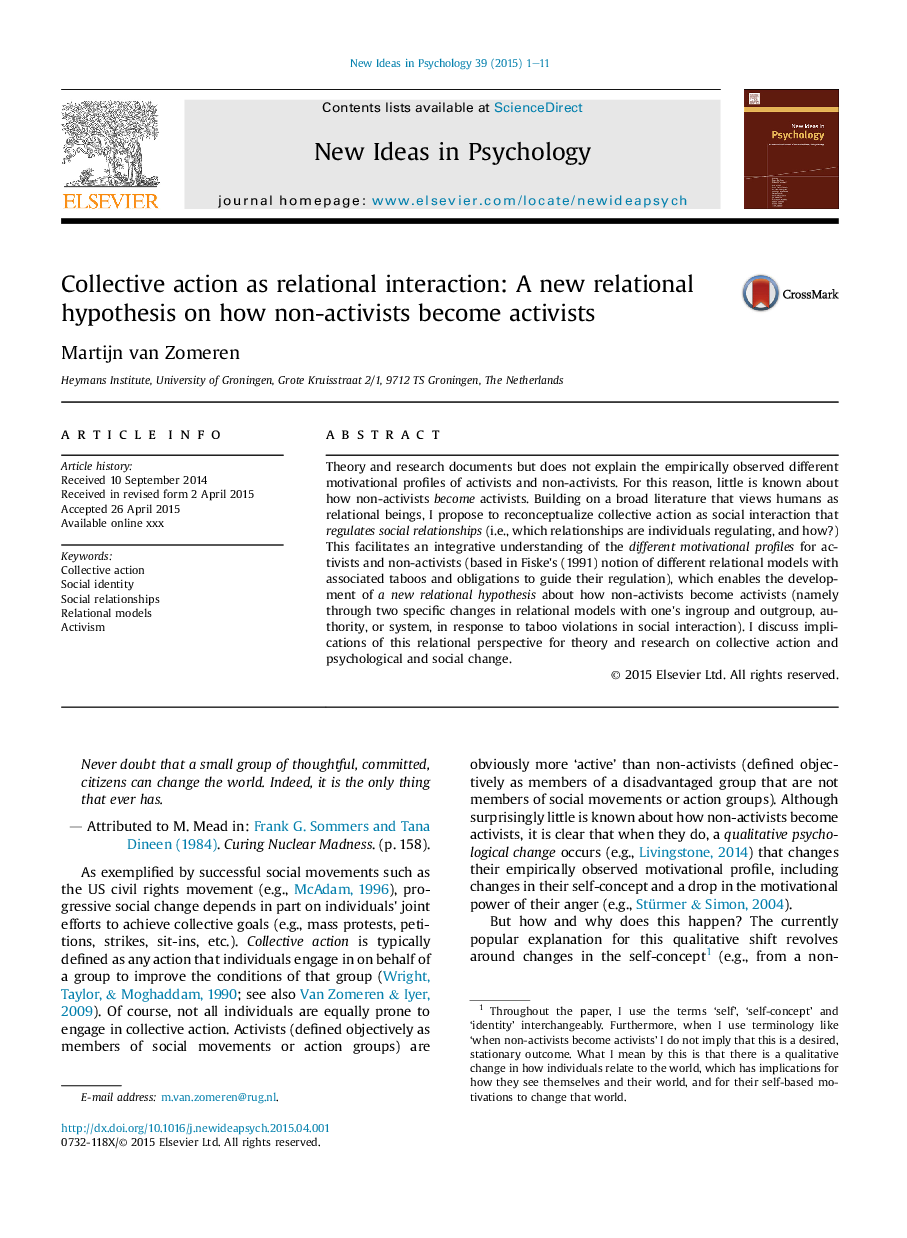| Article ID | Journal | Published Year | Pages | File Type |
|---|---|---|---|---|
| 6811018 | New Ideas in Psychology | 2015 | 11 Pages |
Abstract
Theory and research documents but does not explain the empirically observed different motivational profiles of activists and non-activists. For this reason, little is known about how non-activists become activists. Building on a broad literature that views humans as relational beings, I propose to reconceptualize collective action as social interaction that regulates social relationships (i.e., which relationships are individuals regulating, and how?) This facilitates an integrative understanding of the different motivational profiles for activists and non-activists (based in Fiske's (1991) notion of different relational models with associated taboos and obligations to guide their regulation), which enables the development of a new relational hypothesis about how non-activists become activists (namely through two specific changes in relational models with one's ingroup and outgroup, authority, or system, in response to taboo violations in social interaction). I discuss implications of this relational perspective for theory and research on collective action and psychological and social change.
Related Topics
Social Sciences and Humanities
Psychology
Developmental and Educational Psychology
Authors
Martijn van Zomeren,
